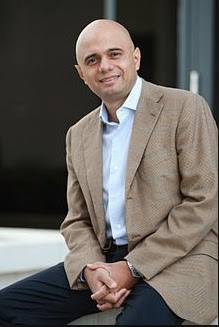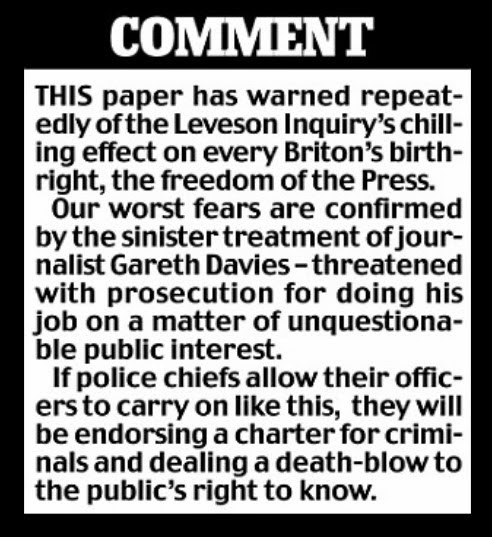Janice Turner on the coverage of the death of Peaches Geldof, in The Times [£]: "The dilemma now is how we deal with death in a digital age. The press faces constant accusations of tastelessness or intrusion. But it was the US president and British prime minister who posed for a selfie at Nelson Mandela’s memorial; Diane Abbott MP who live-tweeted Tony Benn’s funeral. The more a famous person shares of his or her life, the closer the public feels entitled to be. The last of countless Twitter photographs Peaches shared was a childhood snap with her late mother, yet newspapers who republished it were condemned."
Financial Times editor Lionel Barber on the paper's plan to set-up its own system of press regulation: "After careful consideration, the
FT has decided to put in place a system which is accountable, credible, robust and highly adaptable to meet the pace of change in our industry. We believe this approach is consistent with our record of journalistic excellence and integrity, and it builds on our already strong system of governance designed to maintain the highest possible ethical standards."
Former NSA contractor Edward Snowden on the decision by the Pulitzer prize committee to give the Guardian and Washington Post its top award for the revelations on secret surveillance: "I am grateful to the committee for their recognition of the efforts of those involved in the last year's reporting, and join others around the world in congratulating Glenn Greenwald, Laura Poitras, Barton Gellman, Ewen MacAskill and all of the others at the
Guardian and
Washington Post on winning the Pulitzer Prize for Public Service. Today's decision is a vindication for everyone who believes that the public has a role in government. We owe it to the efforts of the brave reporters and their colleagues who kept working in the face of extraordinary intimidation, including the forced destruction of journalistic materials, the inappropriate use of terrorism laws, and so many other means of pressure to get them to stop what the world now recognises was work of vital public importance. This decision reminds us that what no individual conscience can change, a free press can. My efforts would have been meaningless without the dedication, passion, and skill of these newspapers, and they have my gratitude and respect for their extraordinary service to our society. Their work has given us a better future and a more accountable democracy."

Will Gore in the Independent on the way the Oscar Pistorious murder trial in South Africa is being covered, compared to cases in the UK where stricter reporting rules apply: "Readers may have noticed there has been more “colour” than would be the case if the trial was taking place in the UK. Our reporter in Pretoria has given fascinating glimpses into the personalities of the various characters in proceedings (witnesses, onlookers and lawyers) and has hinted at the impression left on the courtroom by some of the interventions, even some of the evidence."
Trinity Mirror's David Higgerson, on his blog, speaking up for User Generated Content in the regional press: "People take the pictures, shoot the video and their thoughts without a second thought thanks to social media – getting them to share it with the media is the challenge. It’s a challenge half-won if people are already aware you regularly deal with UGC. Getting people to think about us and send stuff to us is a much more rewarding relationship than just scouring social media looking for something which might be newsworthy – for all concerned."
NUJ national organiser Laura Davison on the closure by Trinity Mirror of the Fulham and Hammersmith Chronicle, Westminster Chronicle and Kensington and Chelsea Chronicle:“This announcement has come as a terrible shock to the hardworking staff of these titles.The speed of it means there is little time to look at meaningful alternatives to closure.Trinity Mirror should not simply be able to shut down these titles and lock them away after years of starving them of resources. It will leave some communities with no local paper, depriving them of a way to access information and hold local power to account. Readers and the Trinity Mirror journalists who serve them, deserve better.”
Newcastle's Sunday Sun hits back at Newcastle manager Alan Pardew for blaming local press for not backing his team's after a string of poor results.
Peter Preston on Maria Miller in The Observer: "Miller didn't have to make challenging speeches, so she didn't. Nor, whatever the conspiracy theorists may think, was she truly in charge of any power-tinged processes. Leveson and the royal charter? A wheeze cooked up by Oliver Letwin in the Cabinet Office and implemented in a dazed rush by David Cameron – and whatever Westminster says, it's dead in the water until way past the general election."
New Culture Secretary Sajid Javid on Maria Miller on Question Time: "I don't think you can blame this on Leveson or the media or something. The media are a cornerstone of our democracy, their freedom is very important and if they want to investigate wrongdoing by politicians or any other public official they should do that and nothing should stop them from doing that."
Grey Cardigan on TheSpinAlley: "I KNOW it gets boring, but I have to keep asking the question of every regional editor I meet: 'Why have your bosses butchered your newspaper when it still makes 90% of your profits?' They smile ruefully at me and nod in silent agreement but nobody, nobody, has ever attempted to answer the question. I know, and they know, that their website is never going to make serious money."
Giles Coren in The Times [£] on the claims that people no longer read books because they are too busy skimming social media: "This is worst among journalists, who are without question the least well-read people you will ever meet (unless you regularly meet chefs). They spend all day 'reading' newspapers, shorthand notes, filed copy, newswires, blogs, and when they come home they reckon they’ve done their 'reading' for the day and now it’s time to drink cheap wine and watch Game of Thrones. Which is why the writing in news publications is getting worse and worse by the week: because the people who write the words only ever skim-read other, similar words, thus 'deactivating their deep-reading facility' and stunting their literary development. The result is that, with a few exceptions, the university-educated journalists of my generation write like swotty teenagers, while the straight-from-school-to-the-newsroom guys and girls write like policemen. Because they do not read (because they read too much), their ability with words does not develop over time."




















 David Yelland
David Yelland  Tony Gallagher
Tony Gallagher 



















